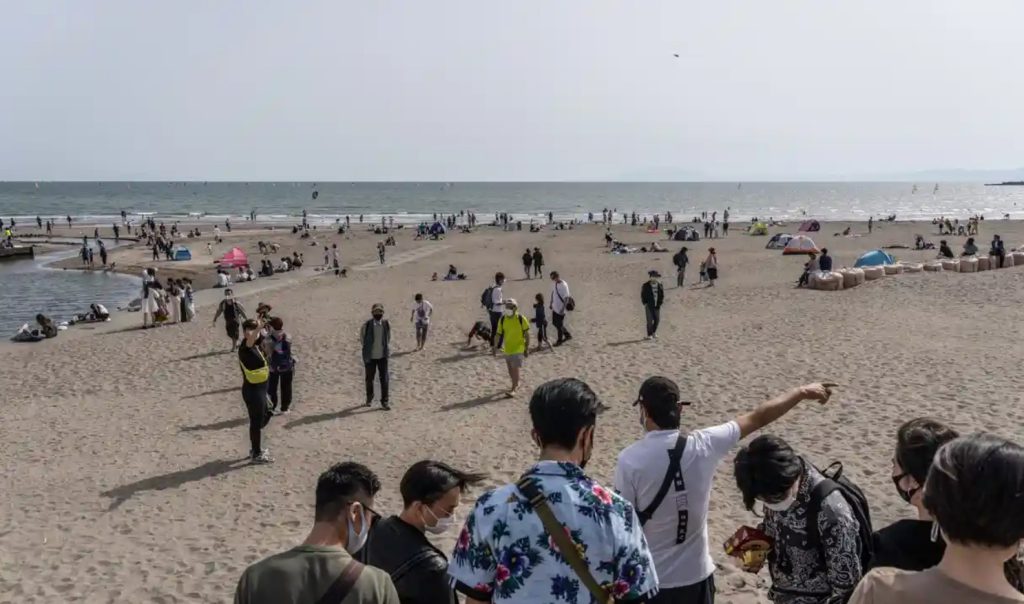
Early July is the cue for Japanese surfers and sun seekers to descend on beaches across the country – and one beach on the Pacific coast is turning to artificial intelligence to ensure that their time in the water is without incident.
Officials in Kanagawa prefecture, south of Tokyo, have introduced an AI system to identify rip currents – which cause 60% of drowning deaths – and send a warning to bathers and lifeguards, according to the Mainichi Shimbun.
The beach at Yuigahama, a popular beach in the town Kamakura, which reopened on 1 July after two years of closures due to the coronavirus pandemic, is a well-known surfing spot and is expected to attract huge numbers of people during what the meteorological agency predicts will be an unusually hot summer.
Experts at the Japan Lifesaving Association and Chuo University in Tokyo collected rip current data over six months in the winter of 2021 to ensure the system worked, the Mainichi reported.
According to the lifesaving association, a web camera mounted on a pole identifies a rip current and anyone swimming its vicinity, and then immediately notifies a lifeguard via a smart watch.
The images were also used to develop a warning system that sends government officials real-time information about bathers after a tsunami occurs, the newspaper said.
The rip current measure is part of a local drive to revive the beach after the pandemic hiatus, and push the area’s environmental credentials. Yuigahama is one of about 20 beaches in the prefecture that have been closed for the past two summers.
“There are some beach huts that haven’t been able to operate for two years, and they’re keen to get started again,” said Mieko Konishi, the chair of the Kanagawa Beach Federation of beach hut owners. “We want to operate our facilities while taking virus countermeasures similar to those in ordinary restaurants.”
Bars and restaurants lining Yuigahama have introduced biodegradable forks and spoons – reportedly a first in Japan – and slopes have been built to improve access for people who use wheelchairs.
“We’re taking a progressive approach that is barrier-free, safe and eco-friendly,” Motohide Masuda, the head of the Yuigahama Beach Business Association, told the Mainichi. “We hope people will enjoy a modern Yuigahama.”





























